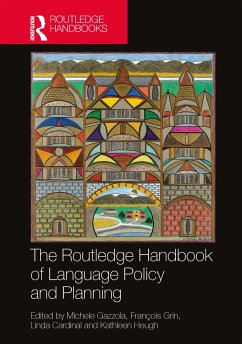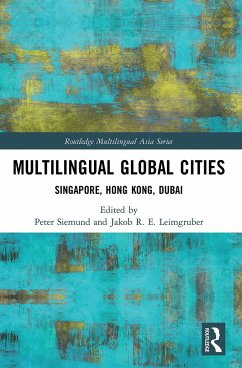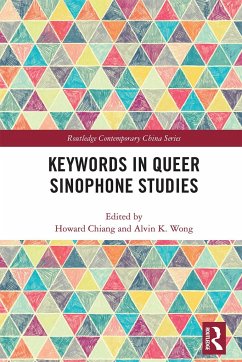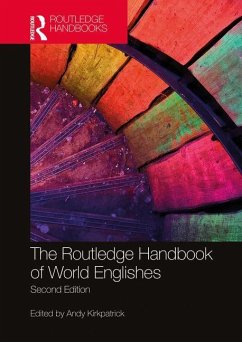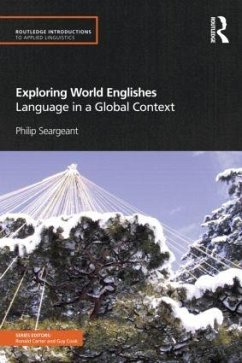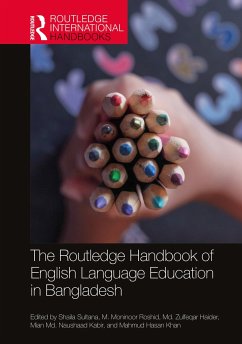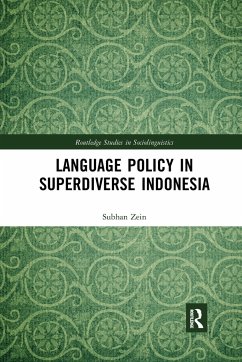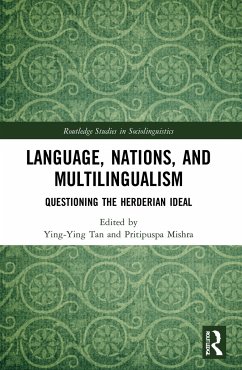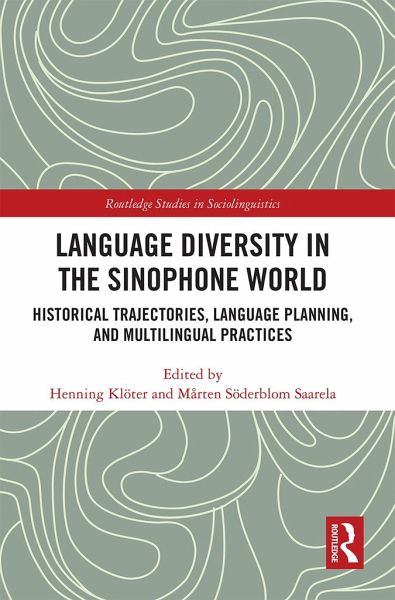
Language Diversity in the Sinophone World
Historical Trajectories, Language Planning, and Multilingual Practices
Herausgegeben: Klöter, Henning; Söderblom Saarela, Mårten
Versandkostenfrei!
Versandfertig in 6-10 Tagen
46,99 €
inkl. MwSt.
Weitere Ausgaben:

PAYBACK Punkte
23 °P sammeln!
Language Diversity in the Sinophone World offers interdisciplinary insights into social, cultural, and linguistic aspects of multilingualism in the Sinophone world, highlighting language diversity and opening up the burgeoning field of Sinophone studies to new perspectives from sociolinguistics.The book begins by charting historical trajectories in Sinophone multilingualism, beginning with late imperial China through to the emergence of English in the mid-19th century. The volume uses this foundation as a jumping off point from which to provide an in-depth comparison of modern language plannin...
Language Diversity in the Sinophone World offers interdisciplinary insights into social, cultural, and linguistic aspects of multilingualism in the Sinophone world, highlighting language diversity and opening up the burgeoning field of Sinophone studies to new perspectives from sociolinguistics.
The book begins by charting historical trajectories in Sinophone multilingualism, beginning with late imperial China through to the emergence of English in the mid-19th century. The volume uses this foundation as a jumping off point from which to provide an in-depth comparison of modern language planning and policies throughout the Sinophone world, with the final section examining multilingual practices not readily captured by planning frameworks and the ideologies, identities, repertoires, and competences intertwined within these different multilingual configurations.
Taken together, the collection makes a unique sociolinguistic-focused intervention into emerging research in Sinophone studies and will be of interest to students and scholars within the discipline.
The book begins by charting historical trajectories in Sinophone multilingualism, beginning with late imperial China through to the emergence of English in the mid-19th century. The volume uses this foundation as a jumping off point from which to provide an in-depth comparison of modern language planning and policies throughout the Sinophone world, with the final section examining multilingual practices not readily captured by planning frameworks and the ideologies, identities, repertoires, and competences intertwined within these different multilingual configurations.
Taken together, the collection makes a unique sociolinguistic-focused intervention into emerging research in Sinophone studies and will be of interest to students and scholars within the discipline.





